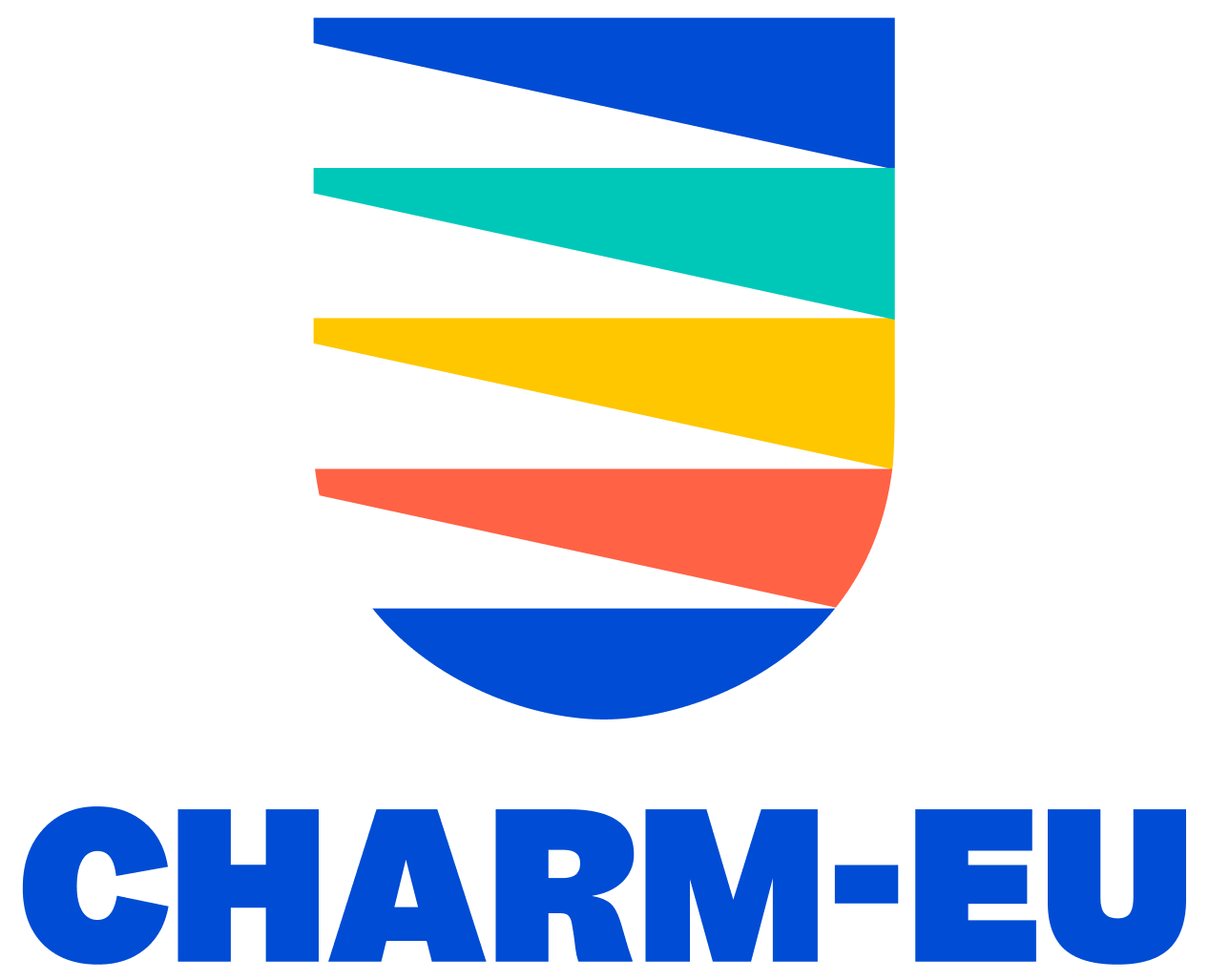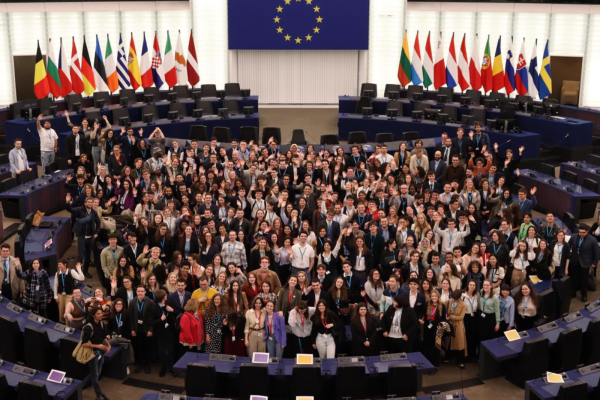CHARM-EU has recently had the chance to ask to some students from diverse backgrounds and areas of expertise within the alliance universities about their experience.
When asked about the reason behind applying to ESA, Victor Morozov, a PhD researcher in Film Studies at Trinity College Dublin, recognises he has “a deep interest in the notion of European identity and what „Europeanness” could mean in today’s world, whether this is related to the much-needed politics of the social state or to simply enjoying a coffee in a sunny old town square. Being together with people from all European Union countries and having the possibility to reflect collectively on concrete ways to improve the social, political, cultural, and economical situation in Europe seemed to me a more than opportune occasion, given the high stakes that this year holds for Europe and the world”, Maryam Bokdasji, a law student at the University of Bergen, seconds his argument and admits “We are the ones who will construct the EU of tomorrow”.
Lu-Yen Elías Chea, currently pursuing an LLM in Digitalization & Law at the University of Würzburg, was selected for the panel on the EU Artificial Intelligence Act. Within this panel, he drafted 2 proposals on the protection of children in the development of AI systems, both of which were adopted by the assembly: “The impact of new technologies on children is something that is very often not taken into account by policy makers. So, I thought it was important to draw attention to this issue”. Victor attended a panel discussion on the challenge of Euroscepticism, Clothilde Raysseguier, a graduate of CHARM-EU’s Master’s program in Global Challenges for Sustainability, worked together with Take Wester, with a background in Management of International Social Challenges, at the panel “Greener is Better” and worked on the EU sustainable growth.
In the event, they had the chance to meet with academics from different universities and the representative of the European Commission’s European Universities Initiatives & Student Engagement. However, Lu-Yen Elías admits he “would have liked to see at least one MEP at the event, unfortunately we only saw recorded messages” although he understands “this has nothing to do with the organisation of the event, but for the MEPs it would have been a great opportunity to engage with young people from all over Europe, even more so with the upcoming elections”. Clothilde had the opportunity to meet the different alliances involved in the ESA, the ESA24 WP co leaders, EUC-VOICES coordinator, Uni-Italia president, Franco-Italian university executive president, Franco-German University president, the president of University of Strasbourg, and Maël Budieau, policy officer at the European Commission.
When questioned about the challenges faced during ESA24, Victor admits his was “overcoming the feeling of powerlessness and even disappointment at what is happening in the world. It was moving beyond the necessary realisation that the European project – with so many positive elements that we have constructed together as society – is in danger. It was also thinking at how we can concretely act in the face of far-right politics, war, and climate change – briefly put, in a temporality of perpetual crisis”. To Take, the biggest challenge was to engage, inform, and motivate the students of his panel in the preparatory phase, where they had to coordinate meetings of 30 students who were all doing the preparatory work for the ESA in their free time.
The best experience during the ESA, according to Maryam, is all the good conversations he had with young people from all over Europe: “People are interested, curious, want to learn and help shape the future that concerns us all”. Lu-Yen Elías Chea enjoyed “the opportunity to work with people from so many different countries, universities, fields and backgrounds has made this a unique experience. For example, in my panel, despite our differences, we managed to come to important agreements and draft high-quality proposals in a variety of areas related to AI. In general, I am very grateful for my panel, as everyone was very keen to discuss and reach the necessary agreements”.
Some of the most important takeaways and lessons learned in ESA24 are…
- Lu-Yen Elías Chea: “ESA has been such a valuable experience, especially as we have the opportunity to help shape the future of Europe. Being able to vote on the proposals also gave us an insight into how the EU Parliament works and how important it is to be informed about what we are voting on, as it can have a significant impact”.
- Victor Morov: “It meant a few days of critical reassessment of the challenges that we face today, but also a number of opportunities to meet people who have since become friends. Building transnational connections in such a pleasant way is an asset which cannot be quantified – yet which, in the face of adversity, might as well prove essential”.
- Maryam Bokdasji: “We live in a world that only gets more and more dangerous with each passing day. The most important thing I have learned is that we need a unified institution to solve today’s and tomorrow’s challenges.”
- Clothilde Raysseguier: “I’ve learned how to draft a policy brief, which will be a key competence for my future career. However, the most significant insight is that membership in the European Union is not a privilege. It is important to be an active citizen to raise our voice and fight for our values. This amazing experience gave me the opportunity to present my policy recommendations to the Parliament and dive deeper into the policymaking world. I do warmly recommend that to everyone!”
- Take Wester: “Most important takeaways: despite differences in opinions, students can find meaningful ways in which they can agree on policy recommendations for the EU, put together a group of eager young people and they will make sure it will be an informative and fun experience, Sometimes leadership means letting people work on their own and not interfering”.
Check the ESA2024 policy recommendations.



